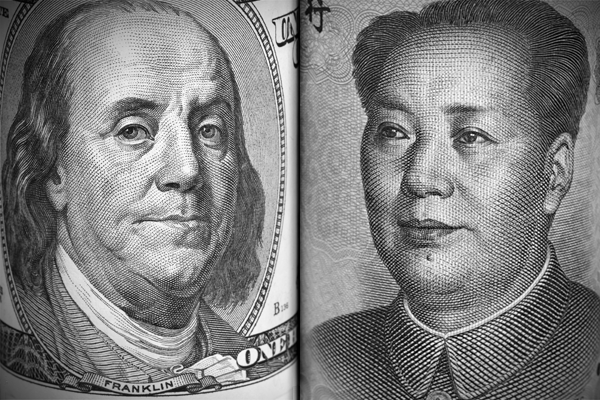Cooperation on export controls tops a long list of recent outcomes achieved at the 25th U.S.-China Joint Commission on Commerce and Trade (JCCT). While encouraging overall, this and other reports also highlight areas in need of improvement.
“This dialogue comes at an important time for the two largest economies in the world who share an enormous stake in the global trade and investment system,” says U.S. Trade Representative Michael Froman.
Having recently taken place in Chicago, both sides are speaking highly of the outcomes of the JCCT, such as those on medical devices, pharmaceutical access and agricultural biotechnology. The newly released fact sheet (embedded below) also offers greater detail into the Chinese efforts to import deep-water oil & gas exploration equipment from the U.S.
While potentially under export controls, the U.S. side of the High Technology and Strategic Trade Working Group (HTWG) says it will “actively review” individual cases for civilian high-technology items, such as deep-water oil and gas exploration equipment, an issue which the Chinese side raised in the HTWG meeting. The U.S. side committed to provide “timely feedback upon receipt of necessary and sufficient information.”
Remaining disagreement often revolve around intellectual property. While the majority of IP issues pertain to U.S. concerns about China's intellectual property rights regime, China was concerned that the U.S. fairly take into account information it receives from China about its efforts.
U.S. trade officials, congressional researchers and industry stakeholders have described Chinese progress on IPR issues as incremental, invariably adding that much more needs to be done. The U.S. committed “to consider and pursue additional steps as appropriate to enhance the transparency, objectivity, and fairness” of the reports, pledging to “recognize the efforts made and results achieved by foreign governments and entities.”
Other Outcome Areas Include:
- U.S. transport aircraft bilateral airworthiness expansion;
- Chinese enterprises participation in U.S. public-private partnership projects;
- competition policy;
- visas;
- cargo airlines co-terminalization;
- data on trade in fish products;
- trade related to illegal logging;
- railway locomotive vehicle import certification;
- government procurement;
- access to the Chinese legal services market;
- Chinese investment in U.S. legal services market;
- cooperation in promotion of trade in services;
- cooperation on climate change and clean energy;
- criminal law enforcement cooperation on intellectual property;
- food and drug safety inspections;
- legal exchanges;
- administrative law issues; and
- engagement on judicial best practices.
Click here to see the full U.S. fact sheet
CRS Report
In related news, the Congressional Research Service Dec. 19 released a report on “China-U.S. Trade Issues” by Wayne Morrison, a specialist in Asian trade and finance.
The report updates previous reports to include the outcomes of the latest JCCT as reflected in a Dec. 19 Commerce Department fact sheet.
It highlights that China stated that it would approve the importation of new biotechnology varieties of U.S. soybeans and corn and improve trademark protection for certain agricultural products; amend its trade secrets law and increase cooperation with the U.S. on enhancing sales of legitimate U.S. intellectual property-intensive goods and services in China; streamline China's processes and cut red tape for imports of pharmaceuticals and medical devices; and make improvements to its competition enforcement policies by improving transparency and ensuring equal treatment for foreign firms in anti-monopoly investigations with Chinese firms.
USTR Report
Also just released is the U.S. Trade Representative's final report to congress on China's compliance with its World Trade Organization commitments.
The USTR finds several areas where China is lagging in its commitments: intellectual property rights (IPR) enforcement, supporting state-owned enterprises, homegrown innovation policies, technology transfer initiatives, export restraints, investment restrictions and agricultural policies blocking U.S. market access.
The USTR also found China to be inappropriately using antimonopoly and trade remedy laws. Additionally they say there remains transparency issues and “slow movement” toward accession to the WTO Government Procurement Agreement.
“Going forward,” the report said, “the United States looks to China to reduce market access barriers, uniformly follow the fundamental principles of non-discrimination and transparency, significantly reduce the level of government intervention in the economy, fully institutionalize market mechanisms, require state-owned enterprises to compete with other enterprises on fair and non-discriminatory terms, and fully embrace the rule of law.”
These steps are considered “critical to realizing the tremendous potential presented by China's WTO membership.”








